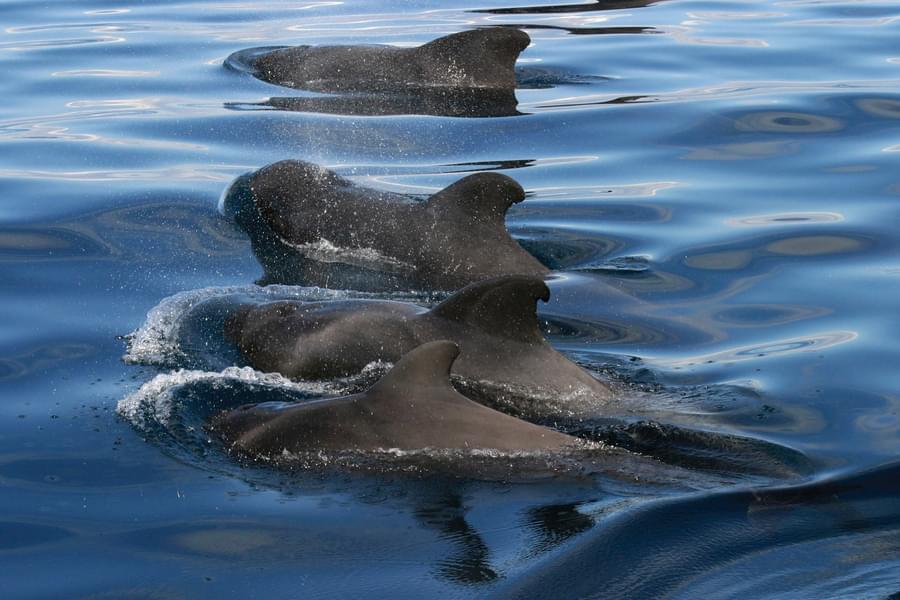A new scientific assessment led by OceanCare and collaborators has thrown new light on the welfare impacts of the Faroe Islands’ grindadráp (pilot whale drive hunt). Published in the Royal Society journal Biology Letters, the paper applies the widely used Five Domains Model to every step of the hunt and concludes that, as currently conducted, it cannot be done humanely.
What the science shows
Using official hunting guidance and documented practice, the authors divide a grind into six stages:
The drive
Forced stranding
Capture and restraint
Application of the spinal lance
Checks for unconsciousness
Exsanguination
Across all stages, they identify demonstrable harms that stack up over time. Likely experiences for individual whales include acute and chronic stress, fear, panic, pain, breathlessness, overheating and exhaustion. Royal Society Publishing.
Two findings are particularly troubling. First, when animals are forced to strand, their unsupported body weight compresses internal organs, compromising breathing and causing pain and physiological damage. Second, the primary killing method - a spinal lance intended to sever the spinal cord and major vessels - may not reliably render animals instantly and irreversibly unconscious. Even the North Atlantic Marine Mammal Commission (NAMMCO) manual requires a corneal-reflex check to confirm unconsciousness, yet evidence suggests this is not consistently performed. That raises the risk that some whales are bled while still conscious - an outcome incompatible with modern humane-killing standards.
2025 context
OceanCare’s monitoring shows the hunts continued this summer. Reported events include a very large kill at Leynar on 12 June (Faroese media and imagery suggest more than 200 animals), 116 pilot whales at Tjørnuvík on 20 July, and around 50 Atlantic white-sided dolphins at Skálafjörður on 26 August. These figures illustrate the scale of suffering the new paper describes, affecting entire social groups of highly social, long-lived cetaceans.
Why this matters to ORCA
ORCA’s mission is to secure healthy seas for whales and dolphins through science, practical conservation, and public engagement. Welfare and conservation are inseparable: practices that inflict severe distress on individuals also disrupt complex social structures and can undermine population resilience. The Five Domains analysis adds weight to calls for a thorough, independent review of the grindadráp’s welfare implications and for an immediate halt to any methods that cannot guarantee a rapid, verified loss of consciousness before bleeding.
We also recognise that durable change is built on dialogue and evidence. OceanCare’s team has advanced the science here; ORCA stands ready to contribute our expertise in non-lethal monitoring - using platforms of opportunity and citizen science - to help decision-makers evaluate alternatives grounded in modern welfare standards and transparent oversight.
What needs to happen next
Apply the science: Authorities should transparently assess each stage against the Five Domains findings and today’s humane-killing benchmarks.
Enforce minimum safeguards: Where killing persists, independent verification of unconsciousness must be mandatory and auditable; failure to do so is unacceptable.

ORCA's work to protect whales and dolphins has never been more important and to help safeguard these amazing animals for the future we need your help. Please support our work by donating at www.orca.org.uk/donate to help us create oceans alive with whales and dolphins

